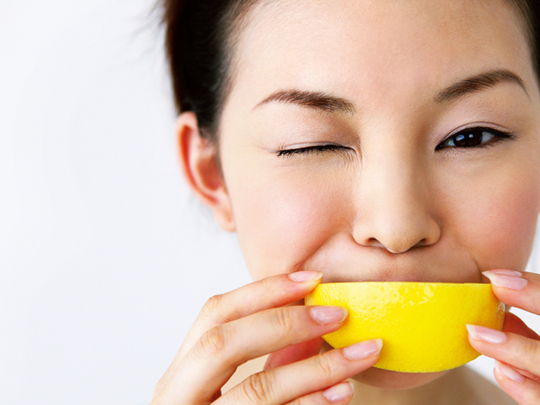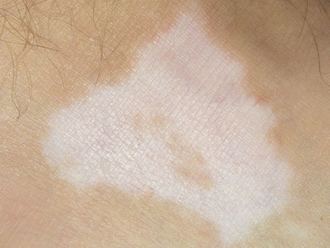
We live with pollution in our air, traces of pesticides in our food, hormone-disrupting chemicals in our water. We drink coffee and tea and eat sweets, junk food and heavily refined goods with artificial additives. We take medicines. All this, according to some supporters of detox regimes, means a toxic overload for many of us. Undertake a detox plan, they advise, and we can flush, purify and cleanse our bodies of toxic build-up to restore us to perfect health.
The food, beauty and complementary health industries have been quick to react to the trend, launching an increasing range of detox pills, potions, supplements, teas, juices, waters, snack bars, beauty creams, therapies and more that all claim to help. But can all these products really help to cleanse, refresh and rejuvenate you? Or is detoxifying a waste of time and money - or worse, a danger to your health?
A variety of options
There are a number of treatments that promise to relieve toxic build-up in your body. These range from clay or algae body wraps and masks that claim to draw out impurities through the skin, to biostimulation. With this treatment, electrical pulses are applied to your body by specially designed machines in order to stimulate your lymph nodes, boosting your body's lymphatic drainage system.
But it's the digestive system, especially the bowel, which is often seen as the principal harbourer of toxins. Throughout history there has been a long tradition of digestive cleansing. In traditional Ayurvedic medicine, the yogic practice of kunjal kriya (stomach wash) through drinking and then regurgitating saline liquid is used to detox the upper digestive organs, while the shankaprakshalana kriya (bowel wash) is a complex process by which saline is pushed through the whole intestine and rapidly eliminated.
These treatments cannot be casually recommended but the growth of colonic hydrotherapy is a sign that bowel detoxing appeals to many people. For this treatment, water is pumped into the colon, the therapist gives the stomach a massage to release impacted debris and a tube carries waste away. It all sounds easy but is it even safe?
Registered colon hydrotherapist Emma Arden insists that in the correct hands it is, arguing that it can be a wonderful treatment that helps achieve a revitalised and functional digestive system. She says it can help any number of digestive conditions like irritable bowel syndrome (IBS). "With a change of lifestyle and diet, colonic hydrotherapy can be a fantastic way to kick-start a detox plan," she says. "It releases bad bacteria from the colon, allowing healthy flora to re-grow at an accelerated pace."
Fasting is another time-honoured detox tradition in many cultures that has become widely popular for its alleged health benefits. Nutritionist Amanda Griggs is an advocate of the Lemon Detox, a liquid fast that lasts about a week. It involves drinking a mixture of water, lemon juice, cayenne pepper or ginger and Madal Bal Natural Tree Syrup. The blend was devised by Ayurvedic practitioners (see www.lemondetox.com).
Griggs stresses that a pre-detox consultation and preparation are vital. "I've seen better results on the Lemon Detox when patients are fully prepared," she says. "I often put people on a nutritional programme first to balance their sugar levels and to ensure that they are absorbing their food properly. Then I'll switch them to a vegan diet and then the lemon detox. For some people, it is just too tough so I encourage them to do the relaxed version, which allows one meal a day."
The orthodox view
General practitioner Graham Archard is dismissive of such detox practices and is concerned they encourage people to people feel they can over-indulge in poor-quality food and drink, then turn to a detox as a quick and easy remedy for a bad lifestyle.
"Colonic irrigation washes out bacteria, which the body needs to make essential vitamins," he says, "and therapies that make you sweat do not detox because there are no toxins in sweat glands. What you can do to transform your health is to eat a diet rich in fruit and vegetables, not smoke and to exercise - it's that simple."
Nutritionists are also concerned by the restrictions some detox plans impose. Dietitian Anna Suckling says, "Omitting wheat and dairy foods can be detrimental to health if they are not replaced. Wheat-based foods provide slow-release energy, while avoiding dairy could mean calcium requirements are not met therefore increasing long-term risk of osteoporosis.
"Our bodies have their own detox organs, including the liver, kidneys, intestines and lungs, so as long as we follow a healthy lifestyle, we do not need extra help."
Alison Cullen, a nutritionist with a special interest in herbal medicine, advises against fasting if you normally lead an unhealthy lifestyle.
"It's too much of a shock for most bodies," she says. "Someone eating a junk-food diet who drinks and smokes and then goes on a sudden fast, risks making themselves extremely ill indeed."
A gentle approach
The body is capable of dealing with its own detoxification, but is there anything we can do to help it along?
Although she believes colonic hydrotherapy is effective, Alison generally advocates a milder approach, emphasising the importance of getting the eliminatory organs working properly.
"When you spring clean your home, you first open the windows and doors - and in any detox, you should open up the body's exit routes before you start drawing toxins out of the tissues into the blood," she says.
"If you don't open up the urinary tract and bowel and lungs and skin you'll have a situation where toxins are released into the blood, and they stay there causing havoc and bringing on the deeply unpleasant symptoms of headache, catarrh and acne that are typical during cold-turkey detox regimes."
To avoid this, Alison recommends a gradual reduction in consumption of caffeine, an increase in consumption of still water, more exercise and a move away from eating processed white foods towards incorporating more whole foods into our diets.
She also advocates the use of herbs to encourage the detoxification of organs so that they can act more efficiently. Milk thistle or artichoke taken as a tincture can help, as can dandelion or peppermint teas.
"Contrary to popular belief, milk thistle does not cleanse the liver. It protects it and improves the regeneration of liver cells," says Alison. "But dandelion is cleansing and artichoke improves fat metabolism. Together they can work together to help detox."
Furthermore, Dr Archard stresses that mental detox is important too, encouraging us to take time to play, as well as work and to refuse to simply accept stresses in our lives by tackling the root causes of it.
"In my view, the pampering, safer, non-invasive therapies will give you the same results as the invasive ones like colonic irrigation or acupuncture," he says.
"Yoga, aromatherapy, reflexology and massage can help you relax - and relaxation and a good massage make you feel better, and cared for. If you feel better mentally, you'll feel better physically, and your immune system will be boosted, and you'll be a healthier individual."
Easy detox
Want to avoid a drastic detox diet but still want to help your body along? Here are some small steps you can try:
- Cut down on refined sugar - especially sweets and treats eaten on an empty stomach, which sharply affect the body's biochemistry. Try organic dried fruits instead.
- Avoid smoking and limit non-necessary medicines such as painkillers unless you really need them or your doctor has recommended them.
- Go easy on the caffeine - choose still water (sparkling water just adds unnecessary carbon dioxide to your body), organic juices and herb teas made from filtered water. Naturally decaffeinated organic coffee is okay.
- Exercise regularly and if you jog or run outdoors, stick to very early morning or late evening, so you're not ingesting traffic fumes and pollution from rush-hour traffic.
- Exfoliate - this removes dead skin and opens up your pores allowing them to naturally secrete and sweat out impurities from the body.
- Take regular mind-detox breaks - even five minutes every hour while working will give your head a break and ease your stress levels. Go somewhere quiet and away from people and sit still, breathing slowly and deeply, emptying your mind of all your worries for a while.
- Eat lots of fruit and vegetables. Treat yourself to fruits you've never tried before and experiment with your blender or juicer to come up with interesting, delicious and refreshing concoctions. Make a point of adding a new raw vegetable to your next salad. Grated fennel or beetroot are great options.
- Take your time when sitting down to dinner - eat slowly and allow yourself to focus on the task of eating, letting the body concentrate on the job of digestion. A meal that's not completely digested can stress and overload the body.
- Pamper yourself - an aromatherapy bath, a massage, light meditation with candles can all help you unwind and ease the tension in your body.
- Ensure you get regular sleep - you should aim for around eight hours per night but seven is often okay for some. An exhausted body works less efficiently.












